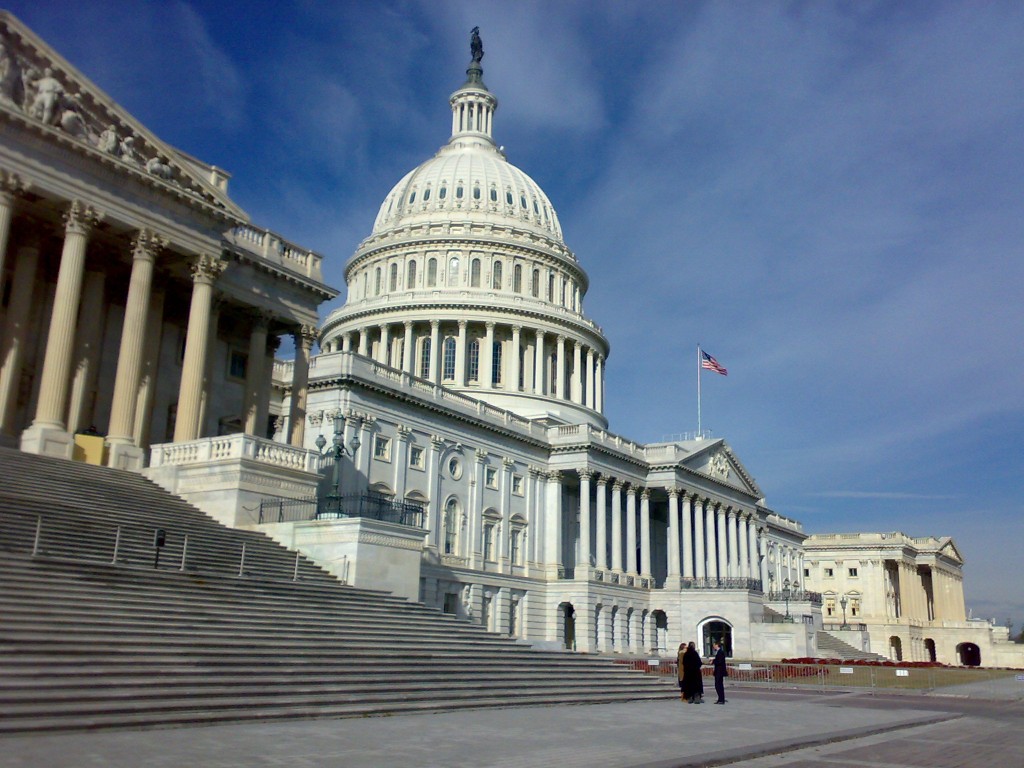
Post-ENDA LGBT equality bill with little religious freedom
The end of the current Congress may well spell the end of the 20-year effort to pass a federal Employment Nondiscrimination Act–and the start of a campaign to pass a comprehensive LGBT civil rights bill that provides almost no accommodation for countercultural religious people and organizations.
A year ago, the Senate passed ENDA, to prevent LGBT discrimination in the workplace, after strengthening the protections for religious organizations that have always been integral to ENDA bills. But the House chose not to consider the bill–and in reaction to the Supreme Court’s Hobby Lobby decision, and encouraged by President Obama’s LGBT Executive Order for federal contractors, most LGBT and civil rights groups disavowed the religious organization exemption in the Senate ENDA bill.
What’s next? There’s a chance that some Republicans in the new Congress will seek to pass an ENDA bill like the Senate bill, which sought to balance LGBT and religious-organization rights.
Whatever comes of that, LGBT and civil rights groups have their sights set on a much more sweeping bill: an LGBT civil rights act that would provide sexual-orientation and gender identity nondiscrimination protections across the wide range of American society: all levels of public and private education, housing and emergency shelter, businesses and other public accommodations, loans and jury selection, and all federal funding–grants as well as contracts.
Bills are promised in the new Congress. In the meantime, there is a report with recommendations from the Human Rights Campaign and a more complete onefrom the Center for American Progress.
The reports urge that what they regard as discrimination based on sexual orientation and gender identity should be treated in federal, state, and municipal law just as racism is treated, with only the most minimal accommodation for religious practice and religious organizations. The HRC report shows its dismissive view of religious freedom mainly by giving it little attention.
The Center for American Progress report is more forthright, including a separate section devoted to arguing that religious freedom should yield when the issue is anti-discrimination law. It praises the New Mexico Supreme Court’s denial of protection to the small photography business that declined to help commemorate a lesbian commitment ceremony, citing approvingly that court’s view that religious freedom should be respected only as long as it doesn’t intrude into how a believer conducts his or her life out in society. It celebrates the notorious religious-freedom undermining US Supreme Court decision of 1990, Employment Division v. Smith: as long as a law is not designed specifically just to undermine religious exercise, it is perfectly constitutional even if it has the effect of undermining religious exercise. And in response toHobby Lobby and other decisions that honor the heightened religious exercise protection restored by the Religious Freedom Restoration Act (RFRA), the Center for American Progress report urges Congress to dramatically reduce RFRA’s protections “to ensure it cannot grant a license to discriminate.”
But actual “American progress” requires not the suppression of religious freedom but rather a fair balancing that does not undermine religious exercise and religious organizations when society works to suppress unjust discrimination. To come to that balance, Congress will need to do more than just say No to these unbalanced proposals.
